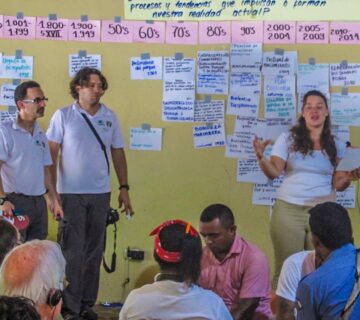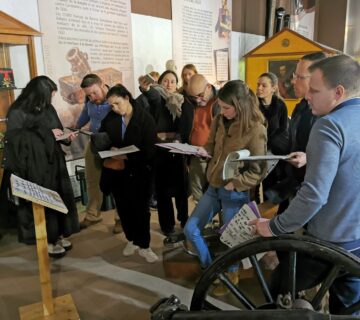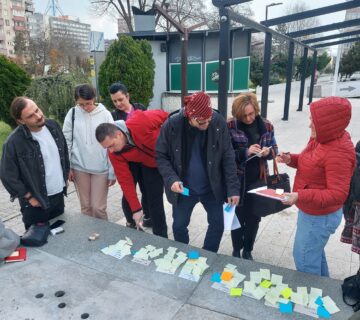Several of the reports from this online conference link well to the importance and impact of heritage interpretation.
UNESCO is working in partnership with PRAXIS at the University of Leeds, UK and with support from the Arts and Humanities Research Council (AHRC) to deliver a series of brief reports honing in on key themes within the cultural heritage for sustainable development sphere.
Agreed in 2015 by the United Nations General Assembly, the 17 Sustainable Development Goals (SDGs) unite 193 Governments with the shared aim of leaving both our planet and societies on a sustainable footing for future generations.
The Heritage and Our Sustainable Future conference was held online in March 2021 and we have previously reported on how relevant it was to our interpretive work and IE’s current Tourism initative.
One of the latest reports in the series to come out of the conference follow-up work, released on 18 November 2021, was the Creative Industries and Tourism: Beyond Economic Development Brief Report. The conference session explored the role of heritage-based tourism, intangible heritage and creativity in promoting more inclusive, people-centred and sustainable approaches to socio-economic development. Contributors discussed how it is possible to unlock the potential of heritage to rethink and reframe our (unsustainable) models of development, which have often focused solely on economic growth and its immediate benefits. The session took into consideration a wider range of quality-of-life elements, and a variety of global challenges, including gender equality and climate change.
One of the key insights was:
“Heritage can be a driver for promoting sustainable tourism and generating new economic activities – from arts, crafts and creative industries to sustainable fishing, organic farming and agriculture – while also stimulating solidarity and empowering marginalised and disenfranchised groups.”
Recommendations from the report include:
- Create linkages between traditional heritage practices, contemporary arts and design, and modern techniques
- Increase heritage awareness and stimulate creativity
- Harness the potential of museums and heritage institutions as unique environments for community engagement, co-creation, networking with stakeholders and long-term heritage management
Of course, we can see how heritage interpretation could help to meet these goals.
The report can be found here:
https://unesco.org.uk/wp-content/uploads/2021/11/Creative-Industries-and-Tourism-Report.pdf
Why not look through the full series of thematically arranged reports:
https://unesco.org.uk/conference/heritage-and-our-sustainable-future/research-practice-policy-and-impact/
- Biocultural Heritage and Landscapes: Linking Nature and Culture
- Bridging the Gaps: Cultural Heritage for Climate Action
- Re-thinking Capacity Strengthening for Sustainable Development
- Reducing Inequalities and Decolonising Heritage Practices: People Centred Approaches
- Using Digital Technology to Innovate in Heritage Research, Policy and Practice
- Heritage, Mental Health and Well-Being
- Creative Industries and Tourism: Beyond Economic Development
- Heritage, Disaster Response and Resilience
- Inclusive Development for Sustainable Cities
- Evaluating the Impact of Cultural Heritage for Sustainable Development
To cite this article: IE News Team (2021) ‘UNESCO: Heritage and Our Sustainable Future series’ in Interpret Europe Newsletter 4-2021, pg.33
Available online: https://interpret-europe.net/wp-content/uploads/2021/12/Newsletter-Winter-2021.pdf




